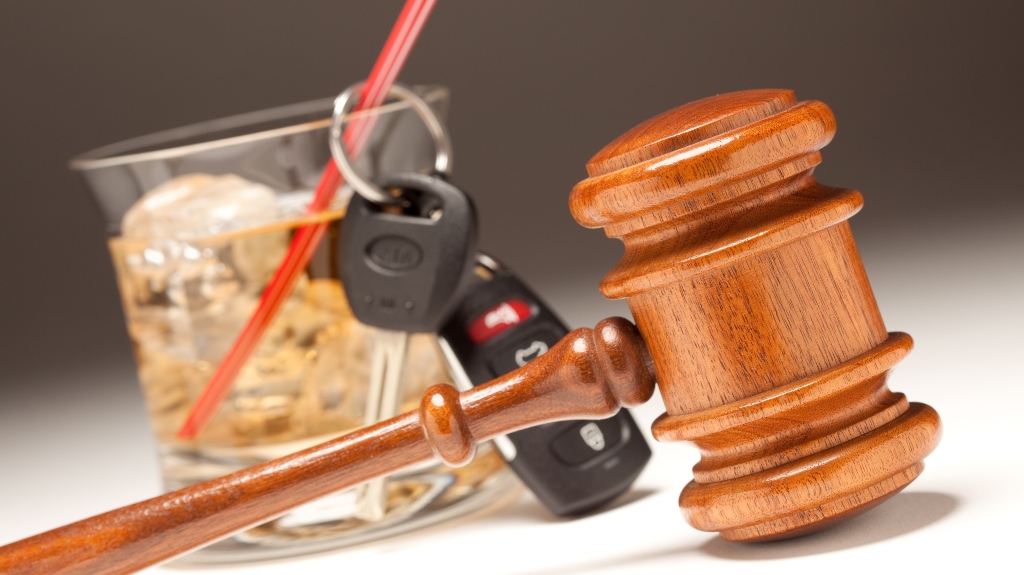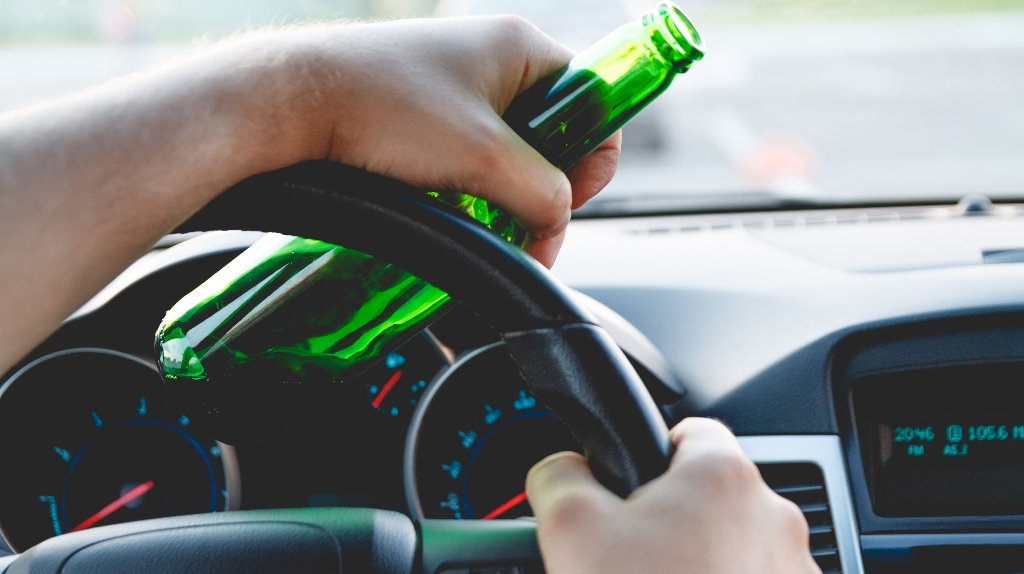Methods of Prosecuting an OUI
If you are charged with OUI in Massachusetts, you can be prosecuted in two ways, depending on the facts of the case and the evidence available to the prosecutor. First, if you submitted to a breath or blood test with a result of a 0.08% blood alcohol concentration (BAC) or higher, the prosecutor can prosecute you on what is called the “per se” theory of the law. The prosecutor can argue that you are in “per se” violation of the law based upon your breath or blood test result without having to show any other evidence that you were impaired.
The second way to prosecute an OUI charge is under the “impaired theory.” Under the “impaired theory”, the prosecutor relies upon the observations of the police to prove that you were impaired. While the “impaired theory” is pursued most often in cases where there is no evidence of a breath or blood test result, a prosecutor can move forward on both the “per se” and the “impaired” theories if there is a BAC result.
No matter which theory the Commonwealth uses at trial, the prosecutor must prove beyond a reasonable doubt that you were under the influence of intoxicating liquor or drugs at the time you operated a motor vehicle. This is a very high burden on a prosecutor. If you submitted to a breath or blood test, there are many potential defenses to the reliability of those tests that may even lead to their exclusion from evidence at trial. Moreover, there are many normal, everyday non-alcohol related reasons that may explain your behavior, appearance, and even your performance on field sobriety tests that may lead to reasonable doubt.
Under the Influence: Per Se Theory
In order to be prosecuted under the “per se” theory, there must be evidence of your BAC. In Massachusetts, your BAC can be obtained either by a breath test or by a blood test. However, a prosecutor must meet particular hurdles established by Massachusetts law before a breath or blood test result can be admitted at trial. The prosecution must show compliance with G.L. c. 90, §24 and 501 CMR 2.00 in order for the results to be admissible as evidence against you. Both types of testing are fallible at best and the scientific reliability of the results can be challenged prior to trial.
When Must the BAC Test be Administered?
While the statute does not specifically state the time within which the test must be administered in order to be admissible as evidence against you at trial, the Massachusetts Supreme Judicial Court has held that up to three hours between is a reasonable amount of time. Commonwealth v. Colturi, 448 Mass. 809 (2007). If a test is not administered within the three hour window, the BAC result is not admissible at trial without expert testimony discussing retrograde extrapolation. Keep in mind that the acceptable amount of time is dependent on the totality of the circumstances and is at the discretion of the court depending on the facts of the case.
Defenses to BAC Testing at Trial
Under the “per se” theory, evidence of a 0.08% BAC alone is enough for the Commonwealth to meet its burden to show that you were under the influence of alcohol. Commonwealth v. Hebb, 477 Mass. 409, 412 (2017). Although the Commonwealth is not required to show any evidence of impairment or that you had a diminished capacity to operate safely, there are many defenses that a jury is able to consider when determining whether the prosecutor has proven your BAC beyond a reasonable doubt doubt, including:
- whether the test was administered within a reasonable time of operation
- whether the person who gave the test was properly certified, and your assessment of their credibility
- the pre-test procedures that were employed
- whether the testing device was in good working order at the time the test was administered
- whether the test was administered properly
- and any other evidence pertaining to the administration of the test.
Simply because a prosecutor presents evidence of your BAC at trial does not guarantee that they will meet their high burden of proof. If the prosecutor cannot meet their burden, then you cannot not be found guilty of OUI. Therefore, it is imperative that you hire an OUI attorney who is able to skillfully attack BAC evidence.
Under the Influence: Impairment Theory
Unlike the “per se” theory, the “impairment” theory does not require any evidence of a BAC test; rather, under the “impairment” theory, a prosecutor will use the testimony of witnesses like law enforcement to prove that your ability to drive safely was diminished by alcohol. Commonwealth v. Hebb, 477 Mass. 409, 412-413 (2017). Under this theory, the Commonwealth does not necessarily need to prove that you actually drove in an unsafe or in an erratic manner. What they must do is prove that your ability to drive was impaired by the consumption of alcohol or drugs.
What Does It Mean to be Impaired?
In Massachusetts, it is not illegal to drive after having a drink as long as you are not “impaired” of alcohol. However, you do not need to be drunk to be considered “impaired.” You are considered to be “impaired” when you have consumed enough alcohol so that your ability to safely operate a motor vehicle is impaired. Alcohol decreases reaction time, judgment, reflexes, and mental clarity while increasing impulsivity. These factors can negatively impact your ability to drive safely.
Evidence of Impairment
In order to prosecute you for OUI, a prosecutor must present evidence of your impairment. Evidence of impairment generally comes from testimony from a witness. In some instances, this testimony may come from a non-police witness who observed you driving, or made a report to the police.
In most cases, evidence of impairment comes from the testimony from a police officer. Most officers are trained in OUI detection and others have undergone training to administer Standardized Field Sobriety Tests. The police will use OUI detection methods andSFSTs to gather evidence to prove that you were under the influence of alcohol. However, you have the right to refuse to perform SFSTs, and your refusal cannot be used against you. Commonwealth v. McGrail, 419 Mass. 774 (1995). If you refuse to submit to SFSTs, in many instances there will be little evidence of impairment, especially if there is no evidence of a breath or blood test. Without this evidence, it is difficult for the prosecutor to prove impairment.
Impairment Cues and Clues
A prosecutor will rely upon the testimony of a police officer, who is trained to look for particular cues and clues that will support their allegation that you were impaired. Keep in mind that police officers are not trained to document evidence of your sobriety. The police use three phases in their investigation to look for cues and clues of impairment. For instance, during the Vehicle in Motion phase, police may initiate a stop of your vehicle if they observe you drift out of your lane, dramatically vary your speed, or hesitate to go forward at a green light. Though these may sometimes be indicative of impairment, there may also be other, valid reasons for these behaviors.
If police decide they have a reasonable suspicion to stop your vehicle, they will continue to look for impairment cues during the Personal Contact phase. Police will observe how you retrieve your identification, as this is demonstrative of dexterity, how you speak, and whether or not there is a detectable odor of alcohol emanating from your breath or vehicle. Officers may also ask questions meant to test your ability to divide your attention.
The Law Offices of Joseph D. Bernard care about the future of their clients. The professionals at the firm understand your situation and will fight for the best outcome for you to get on with your life.
At this point, if the officer believes there is a reasonable suspicion that you are under the influence, the officer may ask you to step out of the car and perform field sobriety tests. As you exit the vehicle, the officer will observe your level of coordination, your attitudinal response to the request, and your ability to follow instructions. During the Pre-Arrest phase, the officer will then ask that you perform field sobriety tests. During these tests, officers are trained to look for and document clues that could indicate impairment.
None of these cues, behaviors, or SFTS clues are independently indicative of impairment but they may be used collectively as evidence against you. However, there are many problems that arise from these observations, and there may be other valid reasons for certain behaviors.
Defenses to Impairment Cues and Clues at Trial
At every point during your interaction, an officer is observing you for cues and clues of impairment and they will write a police report to document what they observe. Sometimes what the police document in their report is simply not an accurate description of your interaction, which may be revealed through video recordings made by the police. If a jury is able to observe a video of you appearing sober and clear-minded, there will be a strong disconnect from the testimony of a police officer who is alleging that you were drunk. This can be strong evidence that may provide reasonable doubt to a jury.
Furthermore, cognitive bias may play a major role in a police officer’s observations. Officers are trained to only report the cues and behaviors that support impairment and leave out those that do not. Similarly, during SFSTs, officers are trained to document only the clues that suggest difficulty performing the test and potentially indicate impairment, while leaving out what was done well. The police do not take the time to investigate the innocent, non-alcohol related reasons for their observations, nor do they take into account the many cues and clues of sobriety that they may have observed. What the officer did not observe is equally as if not more important than what they did observe. These omissions may be vital to your defense.
Moreover, in many instances, the cues and clues documented by the police are easily explained by everyday activities. For example, police will often document bloodshot and glassy eyes in their report. A reason for having bloodshot and glassy eyes that is completely unrelated to alcohol consumption is simply being tired. Police may observe you perform field sobriety tests and claim that you were not able to complete the tests to their satisfaction. However, many people have injuries to their legs, back, knees, head, and more that will cause you to have difficulty with these types of tests. It is important that you hire an attorney who is thorough and spends time with you to talk to you about your personal history in order to attack the testimony of the police officer at trial.
Lawyers With Expertise in Challenging OUI Prosecutions
The Massachusetts DUI lawyers at The Law Offices of Joseph D. Bernard P.C. are at the forefront of defending OUI prosecutions and have in-depth knowledge of the challenges to both the per se and impairment theories of prosecution. If you were charged with OUI, it is important that you have an effective lawyer on your side with a deep understanding of the law.



